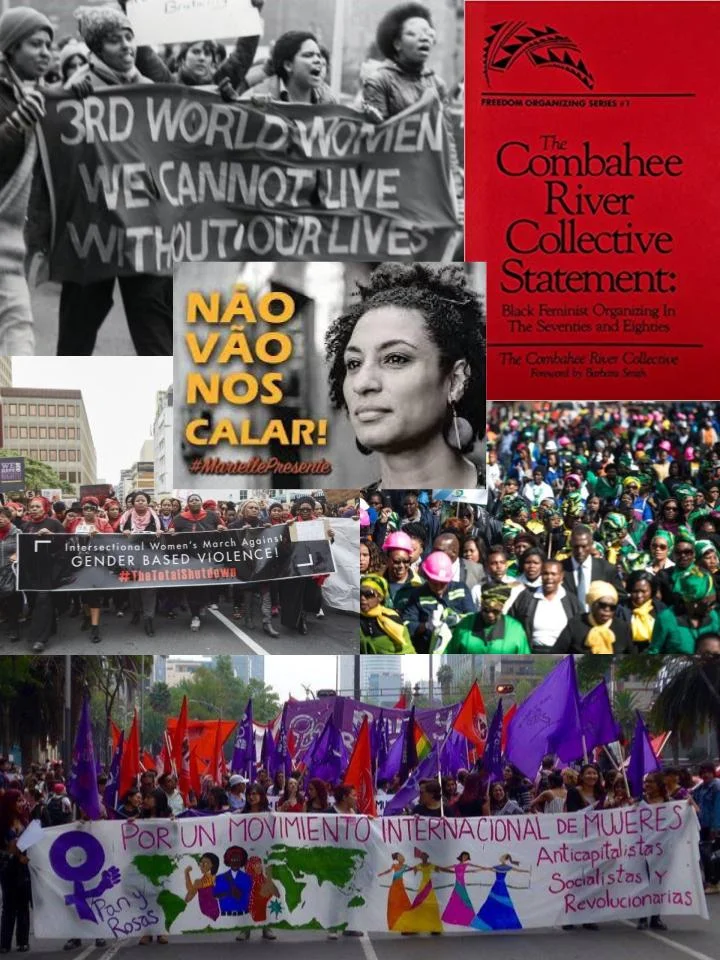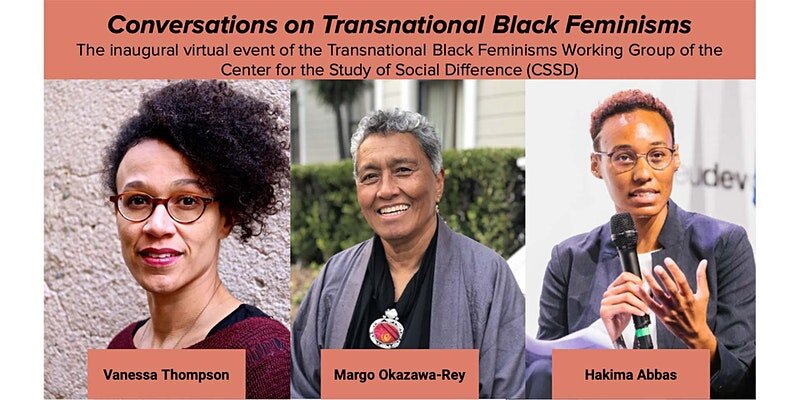Transnational Black Feminisms
Project Co-Directors: Tami Navarro, Premilla Nadasen
The Transnational Black Feminisms working group aims to think about how transnational Black feminisms can move us beyond survivability and demands for recognition, and instead generate alternative frames and understandings around belonging, community, justice, and equity. Black feminism has, by necessity, emerged in tandem with political mobilizations: the struggle against slavery and colonialism; demands for government assistance or social services; and opposition to sexual or state violence, including Black Lives Matter. Such struggles have created the conditions of possibility for nurturing a politics of radical social transformation. They have also raised broader, foundational questions about the relationship between theory and praxis, lived experiences and the articulation of expansive visions of social change.
We have named this initiative transnational Black feminisms—with transnationalism as a modifier—because it foregrounds the long history of Black feminist praxis and theorization, dating back to the 19th century. “Black feminisms” also reflects our understanding of the importance of racial politics in the development of capitalism and global politics—what Cedric Robinson called “racial capitalism”—as well as our goal of integrating a gendered analysis into the concept of racial capitalism. In an era of heightened anti-Black racism—which manifests as systematic police violence, webs of carcerality, discourses of cultural depravity, ghettoization, gentrification, and disposability—it is essential to center a politics of blackness through a feminist, queer, anti-capitalist and anti-imperial lens, as an important vector for the political and social possibilities of imagining and working towards the realization of justice.
In addition, problematic historical and contemporary stagings of the history of feminism in the U.S. position Black women as marginal to a more significant, mainstream white feminist movement, circumscribe them to a limited time frame, and continue the erasure of a long history of a Black feminist politic that was diasporic, imaginative, and radical in both theory and praxis. We hope to explore the historic and ongoing intellectual engagements between Black feminism, transnational feminism, queer politics, anti-imperialism, and anti-capitalism—all of which Black feminisms speak to through Black women’s analyses of intersecting oppressions, the simultaneity of oppression, and strategies for reimagining freedom.
We are particularly interested in charting, exploring, and interrogating the nuances and intricacies of transnational Black feminisms across time and space. Black feminist theoretical lenses have evolved out of internationalist and oppositional engagements throughout the Caribbean, Africa, South America, and Europe. This expansive global view will enable us to assess the coherence and/or visibility of a transnational Black feminist politic, as well as the convergences and divergences, overlaps and contradictions, and synergistic associations among Black feminism, Indigenous feminism, Latinx feminism, and Asian feminism.
News
Events
Upcoming
Past







